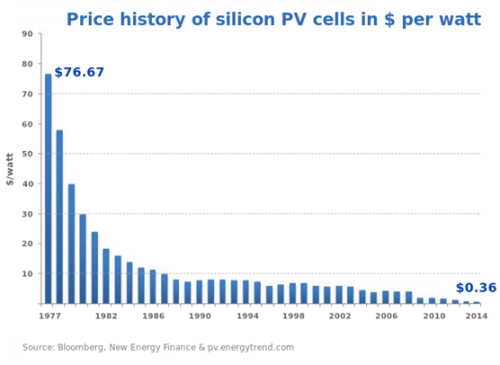Back to mining, cement requires sand. Not only that it requires sand with specific physical properties. We get it by mining, and we are starting to run low.
We're really not running out of construction-suitable sand. The issues with the sand supply are supply chain related, not due to low reserves. Now, there are environmental impacts to mining sand that are very real, and I'm fully on board with the idea that we should track and regulate sand mining more than we do. But we won't run out.
In some sense we will never run out of construction sand because it renews on a human timeline, but only at a finite rate. But once we start tearing up farmland to get the sand out, well, we need farmland more than ever with climate change:
https://www.bbc.com/future/article/20191108-why-the-world-is-running-out-of-sand
Along those lines we will never run out of oil, but we've already run out of all the $1/barrel production cost oil. Deep-water wells can cost $90/barrel to extract. We are used to cheap construction sand, and one day that won't be something that we can rely on. The same goes for frack sand.
Right, but the thing is this - in the old days, if I used oil to heat my house, or gas to run my car, what happens when I ran out of gas or oil? Right, I needed to buy more. A constant re-supply was needed. But with solar that's no longer true. Once you have added your up front costs (including environmental costs), then you are done. The only thing I see as 'disposable' and needing to be replaced would be the batteries. But even now they are talking about being able to run the EV's up to a million miles. Think about that. And we're still early days. It only gets cheaper and faster and longer lasting from here. So yes, I agree, there are 'scale up' costs associated with the initial transition, but after that, the amount of ongoing materials input needed to keep the system going will be far lower than our current setup.
Which is why I talk about 'energy abundance'. Once we're transitioned over, we will literally have more energy than we know what to do with. We'll transition away from a paradigm of scarcity and toward a paradigm of abundance.
Here's another small example. Gas stations. Right now, if you want to build out a gas station, the costs and planning and resources needed to do it are pretty big. You have to dig up the ground, install the underground reservoirs, make them safe, then build out the gas pumps and roof and then the mini-mart store, etc.... But with EV's, you don't need any of that. In fact, you can just add charging stations to the parking lot of an existing business. Like a restaurant, they can add some charging stations to their lot, and then customers can charge while inside eating. The customer wins because it's convenient, and the restaurant wins because they can make a few more dollars off you during your visit.
The nice thing is that with the electrical grid we have, most of the infrastructure needed is already in place.
Here's what I think will happen with batteries. The same thing that happened with solar panels. I remember 20 years ago when everyone said "solar is too expensive, we'll never be able to make solar at scale for cheap". Lest anyone forget, here's what actually happened to those assumptions:

Here's something else to think about - solar has gotten so cheap, it's ALREADY the cheapest option for building out new capacity for electrical companies.

Does anyone think batteries are really going to be fundamentally different? I don't. And if you do, maybe you need another shot from the optimism gun of MMM fame!